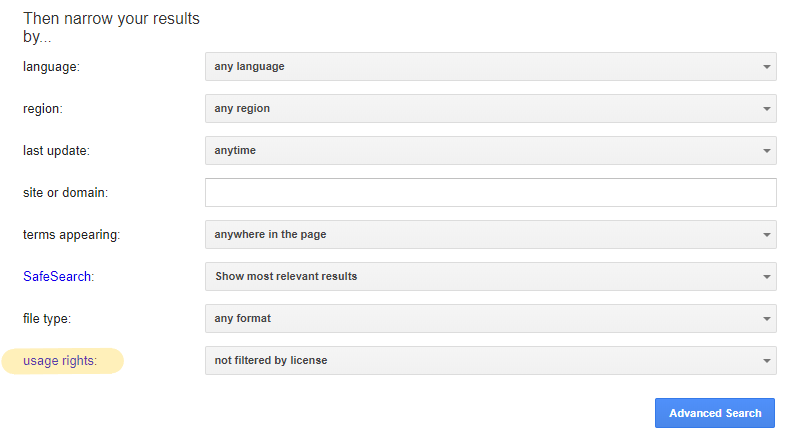Finding OER
Finding Open Content
Learning Objectives
By the end of this section, you will be able to:
- Demonstrate how to conduct a preliminary search for open educational resources.
- Understand how to find support for locating OER at the University of Manitoba.
Search Tips
Start Broad
Searching for OER can be difficult when you’re starting from a narrow perspective. For the most results, start with a broad search focused on your discipline. Once you’ve brought together a large collection of resources, then you can begin to limit your results.
OER Search Scenario
Barbara teaches a course on abnormal psychology. She wants to find videos, readings, and case studies related to this topic for her course. Here is an example of a search strategy she can follow by starting broad:
- Search the Open Textbook Library for “Psychology.” Peruse the Tables of Contents of listed textbooks to find chapters or sections focusing on topics covered in the course.
- Search OASIS for “abnormal psychology.” Since OASIS searches content on multiple repositories, limiting your search a little more can be useful. These can then be sorted by format, type, or date.
- Search YouTube for videos on specific topics related to Abnormal Psych. Since YouTube contains so many different types of content, being specific is more important on this platform.
- As a last-ditch effort, do an Advanced Search in Google for “Abnormal Psychology” (we will discuss this more below).
By the end of these searches, Barbara has compiled the following list: Abnormal Psychology OER List [Google Docs].
Check Your Understanding
Try out your own search using simple keywords. What did you find from your initial search? When did you decide to start narrowing your results? What’s missing?
Filter by Usage Rights in Google
Google is a familiar resource for many of us, and it is also useful for finding openly licensed content. The Advanced Search feature in Google allows you to filter results by usage rights. Filtering by usage rights will limit your results to works with certain licenses listed on the web page, usually Creative Commons licenses. There are a few options to choose from in the usage rights list, but we recommend starting with “free to use or share” to retrieve the broadest set of results. Adding “OER” to your search terms can help you locate materials created for sharing if your Google search is retrieving too many results.

Remember when using this method that Google trusts what users tell it about an item’s copyright status. Although a resource may be labeled CC-BY or even CC 0, you should trust your instincts if you aren’t sure whether the item you are reviewing is actually under copyright. Contact a librarian or the university copyright office if you have questions.
This chapter has provided a short overview of some tools and techniques you can use to find OER. In the next chapter, we’ll provide a more comprehensive list of search tools grouped by topic and type.
Getting Help
UM Libraries staff can help you identify suitable OER textbooks for your courses. Consult the University of Manitoba’s OER by Discipline Guide and contact your subject librarian for more information. Keep in mind that OER can be adapted to fit your course if necessary; you don’t have to use every resource as-is.

